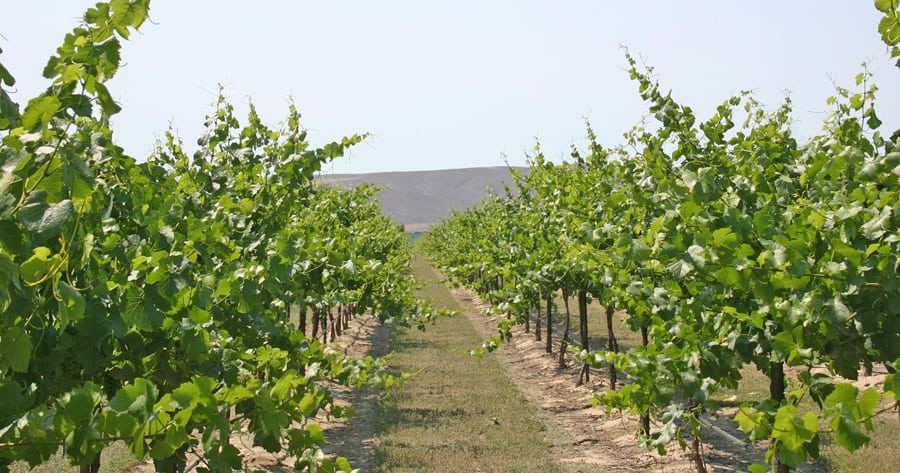
Home » State legislators keen on supporting state’s growing wine industry
State legislators keen on supporting state’s growing wine industry

February 14, 2017
Wine growlers, wine at movies among proposed bills in Olympia
The state’s wine industry — with the Mid-Columbia at the center — is in great shape and getting better as several state legislators push bills to improve sales in Washington.
The state has about 900 wineries — compared to about 300 in 2004 — with an average of four new ones sprouting up each month.
Steve Warner, president of the Washington State Wine Commission, and Josh McDonald, executive director of the Washington Wine Institute, recently briefed the Senate Commerce, Labor & Sports Committee on the industry’s economic situation.
The state has roughly 350 grape growers using about 53,000 acres, according to the wine commission.
Washington’s 2015 wine grape production totaled 222,000 tons with the average price per ton at $1,145, according to the most recent data from the U.S. Department of Agriculture.
It’s been a steady climb for the Washington wine industry in the past decade. The state’s wineries crushed 156,000 tons of grapes in 2009, a total that grew to 210,000 tons in 2013. That translates to 10.9 million cases in 2009 and 14.8 million cases in 2013.
More importantly, wine sales grew from $1.07 billion in 2009 to $1.5 billion in 2013.
In 2015, the state’s wineries crushed 47,000 tons of Cabernet Sauvignon grapes, 44,000 tons of Riesling, 42,000 tons of Chardonnay, 35,000 tons of Merlot, 16,000 tons of Syrah, 9,000 tons of Pinot Gris, 6,000 tons of Sauvignon Blanc, 3,000 tons of Cabernet Franc, 2,000 tons of Malbec and 2,000 tons of Gewürztraminer.
According to wine commission statistics, Washington produces the world’s largest percentage of wines scoring 90 or more, while also being the least expensive among those high-quality wines.
Forty-six percent of Washington’s wines from 2009 to 2015 scored 90 points or higher in ratings by major wine publications. During the same period, 45 percent of Oregon wines scored 90 or higher, France 41 percent, Italy 34 percent and California at 32 percent.
From 2009 to 2015, the average price of a Washington wine scoring 90 points or higher was $43. Other wines of similar quality in the same period broke down as Oregon, $49; Italy, $69; California, $73; and France, $95.
State legislators are keen on helping to support the burgeoning industry.
Here are some of the wine-related bills working their way through the Legislature:
Wine growlers
House Bill 1039 by Rep. Sharon Wylie, D-Vancouver, would allow restaurants and other non-winery establishments that are allowed to sell beer or cider in growlers to also be permitted to sell wine in them.
“Wine has been sold this way in Europe for many, many years,” Wylie recently told the House Commerce & Gaming Committee.
Bell, Beveridge and Jordan Rabinowe of Proletariat Wine Co. in Walla Walla support the idea, saying it would be another way for wineries to expand their sales. “With growlers, we can increase the volume sold, which helps small businesses,” Rabinowe said.
Bell said, “We’ve filled growlers for two years at our winery. There’s no reason we can’t do this elsewhere.”
Beveridge added, “Now’s the time for wine growlers for Washington state. … The top restaurants in Washington state are pouring wine from the tap. They would be willing to use growlers.”
However, McDonald and Katie Jacoy of the Wine Institute of California opposed the bill. Both argued that having wine sold in growlers presents quality control problems because their members’ labels won’t be on the containers leaving the restaurant or grocery.
“It takes away the winery’s ability to control the packaging,” Jacoy said.
McDonald added, “We want to be able to control the quality of our products. … This quality control important to us.”
But Rabinowe countered that beer and cider producers don’t have quality control problems with growlers. He and Wylie also contended that growlers decrease the use of glass bottles, meaning less glass ends up in landfills.
Off-site winery tasting rooms
Rep. Cary Condotta, R-Wenatchee, revived House Bill 1038 to increase the number of allowable off-site tasting rooms per winery from two to four under a domestic winery license.
Condotta contends that wineries – especially small ones – need the extra tasting rooms to expand their customer base. That bill began its journey in 2015, but it stalled before a House floor vote. The House passed the same bill 92-6 in 2016, but it was never scheduled for a Senate commerce committee vote.
In 2000, a change in state law allowed Washington wineries to open satellite tasting rooms. Before then, the only way a winery could operate an additional tasting room was to have wine production on the premises. The change in 2000 provided wineries with the opportunity to have up to two tasting rooms in addition to their main production facility. Wineries didn’t begin to take advantage of the new law until a few years later.
“The wine industry is changing and evolving,” Condotta said. “This simply adds to the number of tasting rooms.”
Clusters of tasting rooms in Woodinville and near the Walla Walla Regional Airport offer small wineries the opportunity to market their products beyond their immediate locations, he said.
Josh McDonald, executive director of the Washington Wine Institute, recently told the House Commerce & Gaming Committee, “Small wineries have a real challenge getting into the distribution market.”
John Bell of Marysville-based Willis Hall Wines and Seattle attorney Paul Beveridge, who operates Wilridge Winery in the Naches Heights area near Yakima, echoed that concern at the same hearing.
“It’s hard for a small winery to become a big winery, or at least become a profitable winery,” said Rep. Bill Jenkin, R-Prosser. “This gives the small guy a chance.”
Condotta’s bill also requires the state government to submit a report to the House Technology & Economic Development Committee every two years regarding the number of new wineries opening in Washington. The first report would be due June 30, 2019.
Wine specialty shops and spirits
Craft beverage producers are hoping lawmakers will allow a beer or wine specialty shop licensee to also sell spirits produced by a state-licensed distillery.
House Bill 2010, introduced by Rep. Norm Johnson, R-Yakima, would apply to a store of less than 10,000 square feet in size, while the distillery must produce 60,000 gallons or less a year.
Brad Tower of the Washington Liquor Store Association opposed the bill at a recent hearing before the House Commerce & Gaming Committee, saying that allowing beer and wine shops to sell hard liquor is unfair to liquor store owners who paid for an expensive state liquor license. “The way we survive … is to have stuff no one else has,” said Jay Smiley, a liquor store owner from Chehalis.
The Washington Distillers Guild has been neutral on the bill. No one spoke in support of it.
Wine and a movie
Senate Bill 5006 is going through the Washington Senate to allow more movie theaters to serve wine and other alcoholic beverages. The bill by Sen. Karen Keiser, D-Kent, would remove two restrictions to theaters being allowed to serve wine, beer and other alcohol.
Right now, to be eligible for a license to serve wine and alcohol, a theater must not have more than 120 seats per screen, be able to prepare and serve complete meals, and provide tabletop accommodations for in-theater dining. Also, if minors are allowed in such a theater, that establishment needs an alcohol control plan approved by the Washington Liquor & Cannabis Board.
Nine theaters serve wine under the current law, said Rick Garza, executive director of the Washington Liquor & Cannabis Board.
Keiser’s bill would remove the 120-seat-per-screen limit and the tabletop requirement. “This is an approach that I think will help a lot of local theater operations,” Keiser said.
At a recent hearing by the state Senate Commerce, Labor & Sports Committee on Keiser’s bill, T.K. Bentler, an official with AMC Theaters, said: “Theaters are either dying or trying to make a comeback.”
Frank Lewis, director of alcohol operations for AMC, said fewer teenagers are patronizing movie theaters, which are trying to rebuild adult attendance. Also, tabletops take up space that would normally hold seats.
Meanwhile, A.J. Witherspoon, vice president of Galaxy Theaters, said movie patrons usually order just one drink for a film showing. “We’ve sold alcohol for nine years and never had an incident of someone having too much to drink,” he said.
Local News Viticulture
KEYWORDS february 2017





